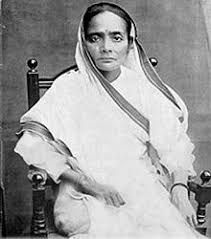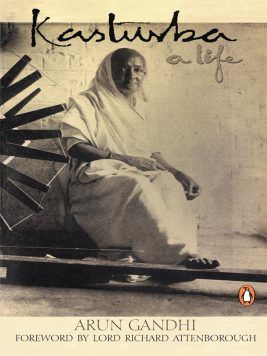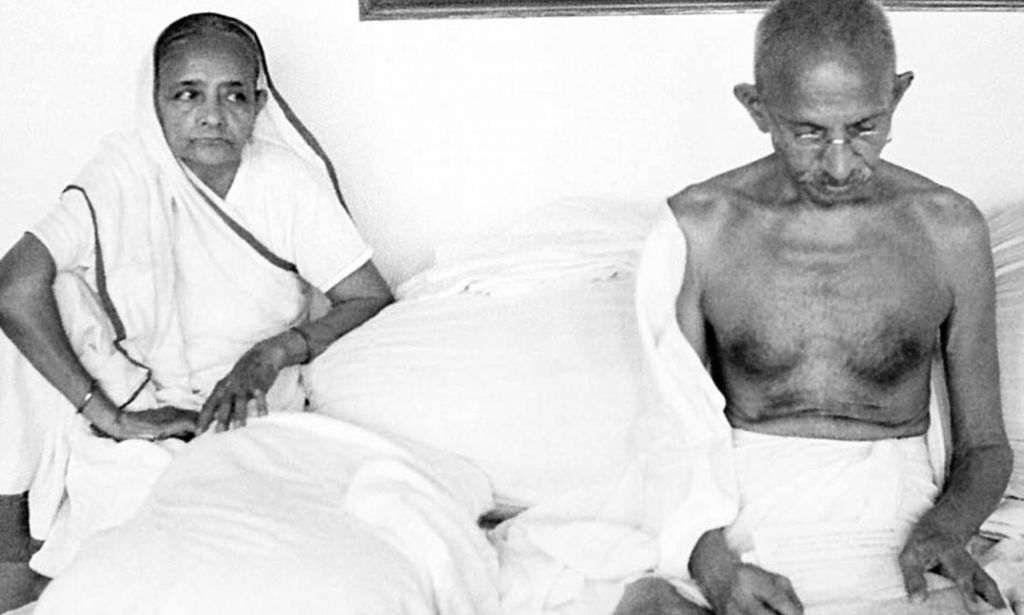Kasturba Gandhi: Story Of An Empowered Woman
Sep 03, 2019 • 140 views
In an era of 19th century Kasturba Gandhi was a beacon of empowered woman. Born into a wealthy and indulgent family, she was a woman of her mind whose wisdom and sacrifice never ceases to amaze me.

Kasturba gandhi - source : Wikepedia
Amidst the chaos of revolution she presented herself as a motherly figure to the inmates of the ashram. She was affectionately known as "ba" to everyone.
Early life and child marriage
She was born in 1869 in the coastal area of porbandar in the family of kapadias.
At an age where modern age girl is given kindergarten education, kastur was learning the art of becoming a good wife, mother and a housekeeper.
In the year 1876, kasturba kapadia and Mohandas karamchand Gandhi at an age of seven were betrothed by a preliminary agreement of their fathers.
Their actual marriage took place after six years of betrothal.
She was a woman with a spirit of proud and free. She never allowed anyone to dictate to her, not even to her husband. And her instincts were naturally conservative.
She gave birth to five sons but unfortunately their eldest son died shortly after the birth. The death of his eldest son took a toll on her. She was not able to cope up with the dilemma until later in her life.
Legacies
It's rightly said that your children will always take your legacies to height. Their four sons( Harilal, Manilal,Ramdas and Devdas)actively participated in the independence movement. They followed the steps of their parents and fought for the dream of independent India.
Well, Till now Gandhi's are carrying their legacies. Manilal's( second son of kasturba Gandhi and Mahatma Gandhi) children Arun Gandhi and Ela Gandhi are both social political workers. In fact Arun like his grandfather is a firm believer of ahimsa or nonviolence.
When he began the research on Gandhi's life for the biographical movie on Mahatma Gandhi, he was moved by the role played by his grandmother in the making of the mahatma.
He decided to write a biography on the life story of his ba or grandma titled as "kasturba a life".

Kasturba a life - source : Penguin publishers
He also mentioned that his only regret was that he didn't get the chance to know her grandma better.
He also mentioned that want inspired him to write this biography was certain memoirs which depicted kasturba as a bumbling fool who didn't knew what her husband was trying to achieve. So, he wanted to break the negative image of her grandmother and show the world that it was actually her behind all the struggles in making of an independent nation.
Major woman behind the making of Mahatma gandhi
In his autobiography, Gandhi pays tribute to her resilience, and confesses that he would often try and exert his will over her and dominate her into submitting to his whims. But she wouldn't budge.
"According to my earlier experience, she was very obstinate. In spite of all the pressure she would do as she wished. This led to short or long periods of estrangement between us. But as my public life expanded, my wife bloomed forth and deliberately lost herself in my work."
-Mahatma Gandhi in ‘The Story of My Experiments with Truth'
Either young or too old, you’ll always need her support.
This statement is clear explanation that mahatma was born by the support of a loyal wife. Although matched by their parents they were a perfect match made in heaven and spend 63 years of their blissful life together.
Kasturba, a tremendous woman whose selfless sacrifice enable their husbands to attain a position of prominence.
According to Mahatma Gandhi, she was his teacher in the art and practice of nonviolent non-co-operation. His this practice started at home.
Always shadow of her husband
Mahatma Gandhi was like banyan tree who overshadowed everyone around him. The contributions of kasturba were always overshadowed by her husband's. And like any other good wife she merged her achievements with her husband's.

Kasturba with Mahatma Gandhi in ashram - source : Daily mail
Major woman crusade of India
she was among the first of the Satyagrahis, or non-violent resisters, sent from Phoenix into the Transvaal to protest the decision of the South African government to declare all non- Christian marriages null and void.
In 1914 when Gandhi and Kasturba permanently returned to India, and Gandhi entered the Indian political scene in 1917, she became more of a political actor.
She was always in the role of front leaders in all the movements lead by his husband. She was a pillar of support to her husband who respected his choices and decisions. She lead the infamous champaran movement in bihar and lead the women of Bihar to stood up for their country. She was first inmate of satyagraha ashram and handled all the chores of ashram. She even made peace with the decision of Mahatma Gandhi choosing a lifestyle of brahmacharya and owning celibacy.
End of the journey
On the evening of 22nd February 1944, she breathed her last at the Aga Khan Palace Detention Camp on Bapu's lap and was cremated in the compound of the Detention Camp on 23rd February 1944.
Her husband sat watching the funeral pyre till the end and when asked by someone to go rest, he remarked, “This is the final parting, the end of 62 years of shared life. Let me stay here till the cremation is over! That evening, after the prayer he remarked, “I cannot imagine life without Ba.”
